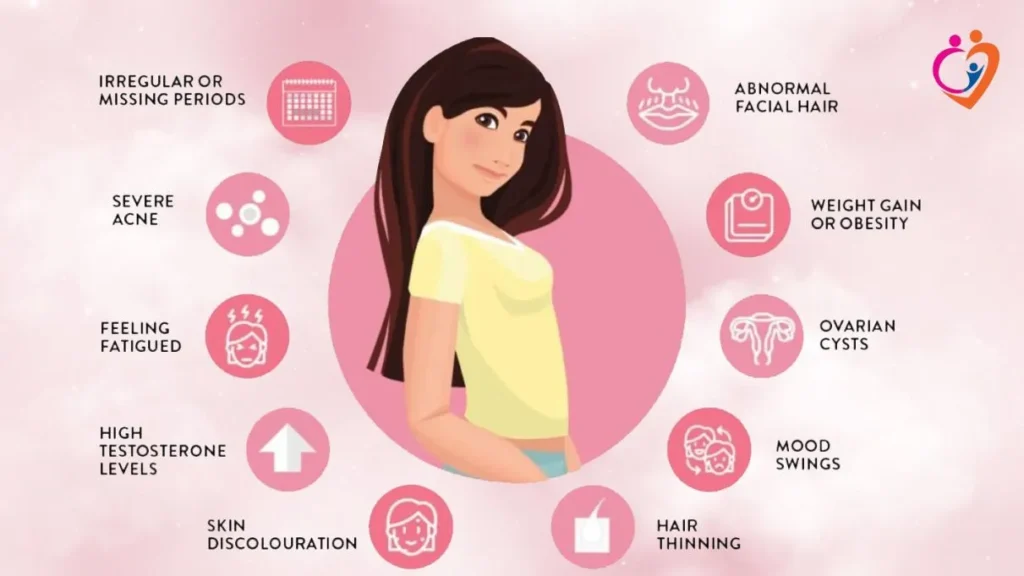Polycystic Ovary Syndrome (PCOD) is a hormonal disorder that affects women of reproductive age. It is often characterized by irregular periods, excess androgen levels, and cysts in the ovaries. While medications and treatments are available, lifestyle changes, particularly dietary adjustments, play a crucial role in managing and reducing the symptoms of PCOD. Dr. Neelima Paleru, the best gynecologist in Hyderabad, recommends a well-balanced diet to help manage PCOD effectively. This diet plan can help reduce the symptoms, balance hormones, and promote overall health.
Why Diet Matters for PCOD
Managing PCOD requires more than just medication. A healthy, balanced diet can help regulate insulin levels, promote weight loss (if necessary), and restore hormonal balance. It can also reduce inflammation, a factor that often exacerbates PCOD. Women with PCOD are often insulin resistant, making them more prone to obesity and other complications. Therefore, a nutrient-dense diet plays a pivotal role in managing the symptoms of PCOD.
Dr. Neelima Paleru, as the best gynecologist in Hyderabad, emphasizes the importance of working with a healthcare professional to develop a personalized diet plan based on individual health needs. A one-size-fits-all approach doesn’t work for PCOD, so it’s vital to follow a plan that aligns with your body’s unique requirements.
Key Nutrients for PCOD Management
Before diving into the meal plan, let’s explore the nutrients essential for managing PCOD:
- Fiber: Helps regulate blood sugar levels and improves insulin sensitivity.
- Sources: Whole grains, vegetables, fruits, legumes.
- Healthy Fats: Aid in hormone production and reduce inflammation.
- Sources: Avocados, nuts, seeds, olive oil, fatty fish.
- Lean Protein: Supports muscle mass and helps in weight management.
- Sources: Chicken, fish, tofu, lentils, chickpeas.
- Chromium: Improves insulin sensitivity and reduces blood sugar levels.
- Sources: Broccoli, whole grains, nuts.
- Magnesium: Helps regulate insulin and may reduce symptoms of PCOD.
- Sources: Spinach, almonds, pumpkin seeds.
- Low Glycemic Index (GI) Foods: Help maintain steady blood sugar levels.
- Sources: Leafy greens, legumes, whole grains, and fruits like apples and pears.
Sample Diet Plan for PCOD Management
While a general meal plan can be helpful, Dr. Neelima Paleru, the best gynecologist in Hyderabad, recommends a personalized approach. The following sample meal plan is designed to balance insulin levels, reduce inflammation, and support overall health for women with PCOD.
Breakfast Options
- Oatmeal with Chia Seeds and Berries:
- Oats are rich in fiber and have a low glycemic index. Top with chia seeds for healthy fats and antioxidants.
- Add berries (blueberries, strawberries) for a dose of vitamin C and fiber.
- Greek Yogurt with Almonds and Flaxseeds:
- Greek yogurt is high in protein and probiotics, which support digestion and gut health.
- Almonds and flaxseeds provide healthy fats and magnesium.
- Scrambled Eggs with Spinach and Whole Grain Toast:
- Eggs are an excellent source of protein, while spinach provides iron and magnesium.
- Whole grain toast ensures a steady release of energy throughout the morning.
Mid-Morning Snack Options
- Apple with Peanut Butter:
- Apples provide fiber and vitamin C, while peanut butter offers protein and healthy fats.
- Carrot and Cucumber Sticks with Hummus:
- Raw vegetables are nutrient-dense and low in calories, while hummus provides protein and healthy fats.
Lunch Options
- Quinoa Salad with Grilled Chicken, Avocado, and Olive Oil Dressing:
- Quinoa is a complete protein and high in fiber, making it ideal for blood sugar regulation.
- Grilled chicken provides lean protein, while avocado and olive oil offer healthy fats.
- Lentil Soup with Spinach and Brown Rice:
- Lentils are high in protein and fiber, helping control insulin levels.
- Brown rice is a whole grain with a low glycemic index.
- Grilled Salmon with Steamed Vegetables:
- Salmon is rich in omega-3 fatty acids, which help reduce inflammation and support hormone balance.
- Steamed vegetables provide essential vitamins and minerals.
Afternoon Snack Options
- Handful of Mixed Nuts (Almonds, Walnuts, Cashews):
- Nuts are a great source of healthy fats, protein, and magnesium, which support insulin sensitivity.
- Boiled Eggs with a Side of Mixed Greens:
- Boiled eggs are an excellent source of protein, while leafy greens provide fiber and antioxidants.
Dinner Options
- Grilled Tofu Stir-Fry with Vegetables:
- Tofu is a plant-based protein rich in isoflavones, which may help balance hormones.
- Stir-fry with vegetables like broccoli, bell peppers, and zucchini for added nutrients.
- Chicken and Vegetable Soup with Whole Grain Crackers:
- Lean chicken and a variety of vegetables provide protein and fiber.
- Whole grain crackers offer fiber and help maintain blood sugar levels.
- Vegetable Curry with Quinoa or Brown Rice:
- A variety of vegetables provide vitamins, minerals, and fiber.
- Quinoa or brown rice ensures a slow release of energy and helps maintain stable blood sugar.
Evening Snack (Optional)
- A glass of warm almond milk with a pinch of cinnamon for added antioxidants.
Additional Tips for Managing PCOD Through Diet
- Eat Small, Frequent Meals:
- Eating smaller meals throughout the day helps maintain stable blood sugar levels, reducing insulin resistance.
- Limit Processed Foods:
- Avoid highly processed and sugary foods, which can cause blood sugar spikes and exacerbate PCOD symptoms.
- Stay Hydrated:
- Drink at least 8-10 glasses of water a day. Hydration is key for maintaining overall health and proper hormone function.
- Avoid Excessive Caffeine:
- Too much caffeine can interfere with hormone regulation. Limit coffee and caffeinated drinks to one or two servings a day.
Why Consult Dr. Neelima Paleru for Personalized PCOD Diet Plans?
While this general diet plan serves as a helpful starting point, Dr. Neelima Paleru, the best gynecologist in Hyderabad, recommends a personalized diet plan based on your specific needs. Factors such as your body type, medical history, and lifestyle can influence the diet that is most effective for you. By consulting with Dr. Neelima Paleru, you can receive expert guidance tailored to your unique health needs, ensuring that you effectively manage and reduce the symptoms of PCOD.
Managing PCOD requires more than just medical treatments; a balanced, nutrient-dense diet is crucial for improving your symptoms and overall health. With the help of Dr. Neelima Paleru, the best gynecologist in Hyderabad, you can create a personalized plan that will support hormone balance, weight management, and improved fertility.
Consult Dr. Neelima Paleru today to learn more about how a tailored diet can help reduce PCOD symptoms and improve your quality of life.



